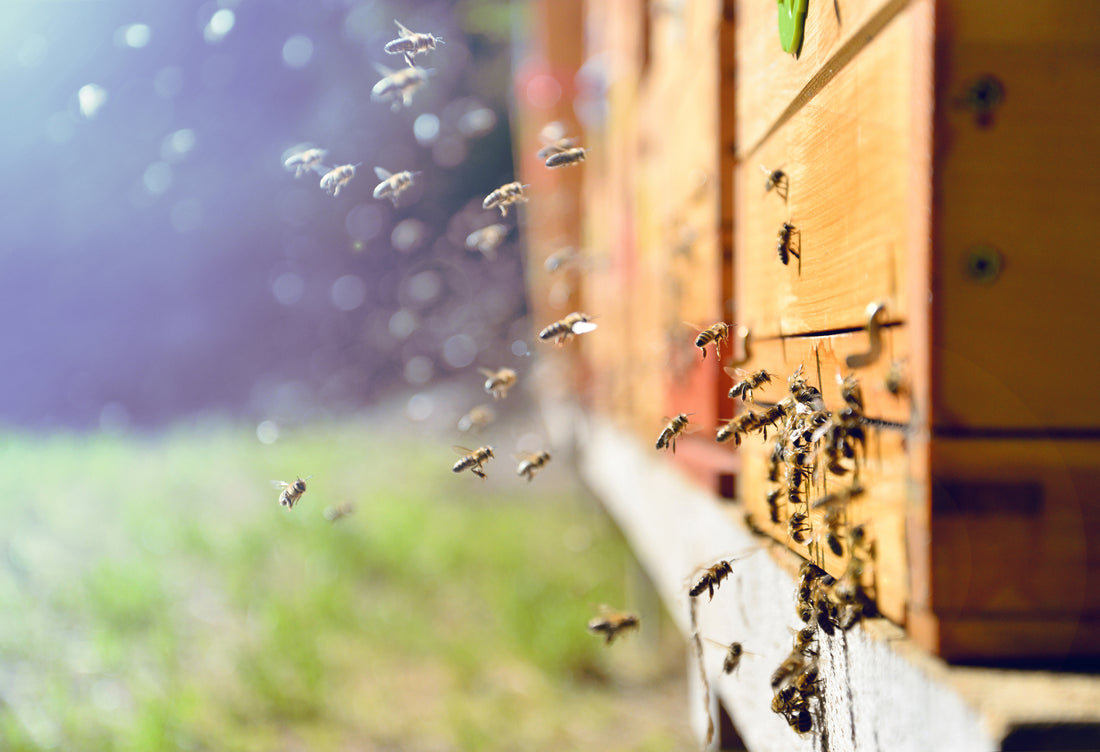Bees are precious creatures – not just for the honey they produce, but also for their role in pollination and the preservation of biodiversity. As we set great store by sustainable agriculture, we have decided to offer bees a home in our vineyards. According to Elio Ferretti – the expert beekeeper who is guiding us through this new challenge – the clean, unpolluted environment of our vineyards is a perfect habitat for bees.
To produce what to us is a delectable and versatile food, these extraordinary insects fly from flower to flower, collecting precious nectar and contributing to pollination in the process. Bees are known to be the most active pollinators, hence their crucial role in plant reproduction. Regrettably, climate change is seriously endangering bees, and as a result, plants and people too. That’s why we believe that by doing something concrete to offer bees new foraging grounds, we are actively supporting their survival – and ours.
Bees find ideal conditions in the natural environment, but they can also thrive on agricultural land, as long as it has not been contaminated by pesticides. While going about their business, they also prevent the spread of pests and promote plant diversity.
Our aim lies not in the mass production of honey, but rather in striking the right balance between production demand and the needs of these insects, so that they can live and work at their own pace and accumulate sufficient amounts of honey for their survival.
The work of bees.. and beekepers
For some weeks now, our bees have been housed in seven colourful hives made by Elio Ferretti. After careful inspection of our estate, Elio has found the ideal location on the edge of a small grove, a place that is well ventilated and exposed to the morning sun. The little workers have already begun to explore the surrounding vineyards and fields in search of nectar from a variety of flowers. To produce their honey, bees have to visit a lot of flowers and carefully choose the quantity and quality of the nectar they collect. They are especially partial to sulla, a Mediterranean plant with beautiful purple flowers that constitutes their main source of supply.
For his part, the beekeeper contributes to honey production and quality by choosing the location of the apiary, constantly monitoring the hives and determining the right time for the honey harvest. He is responsible for ensuring that the right conditions are met, so that the bees can get enough nourishment from nearby flowers and also have access to pure spring water. If that is not the case, he must either feed them or move the hives to a more suitable location.
Aetos honey
We are preparing to harvest the first honey around mid-June. Just like Aetos wine and olive oil, our honey will be the fruit of experience, passion and a love of nature. Aetos honey is 100% natural, and produced mainly from sulla – a plant that allows the soil to be regenerated without the need for chemical fertilisers. Sulla honey is a typical Italian product. Its taste is less sweet than that of other honeys, and it has a delectable note reminiscent of flower meadows. It can be considered a natural supplement as it contains vitamins A, B and C as well as highly concentrated fructose, and it is rich in minerals such as iron, copper, zinc and magnesium. Its delicate taste makes it an excellent spread, a healthy sweetener for foods and drinks, and a good accompaniment to semi-aged cheeses such as Tuscan pecorino.
Buzzing farmlife
Should you find yourself visiting our estate, fear not! Bees are not aggressive, and they only sting as a last resort, either because they feel threatened or to defend their hive. Keep some distance from the hives and let these industrious little creatures work… for us, and for you too!
Giuseppe Basta
Production manager, Tenuta Sanoner
From bees, for bees

